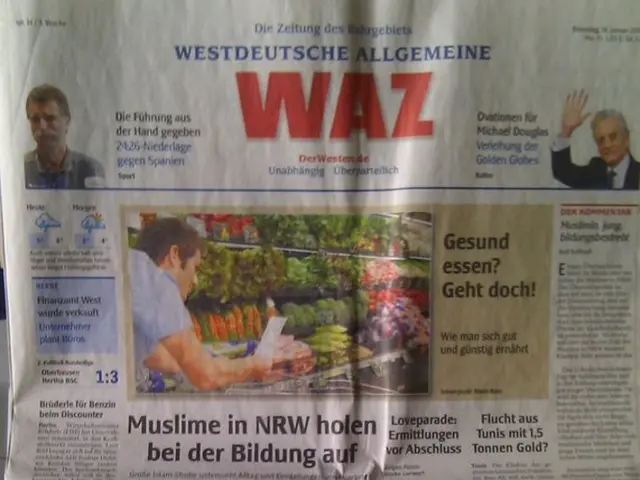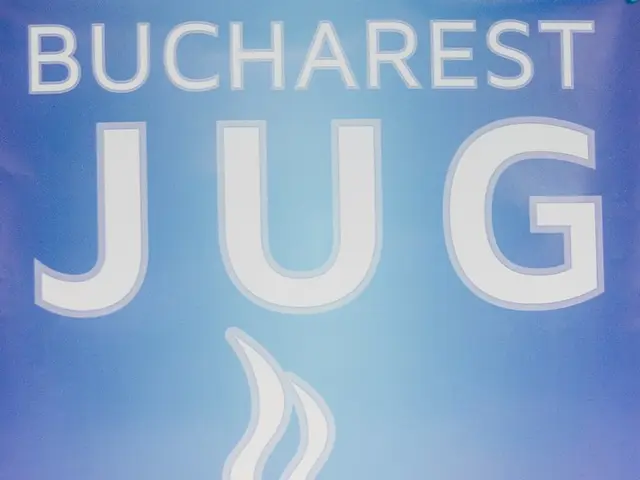Sociologist Michel Wieviorka Expresses Doubt on Hybrid War Theme as a Motivator for Society's Action
In a significant shift in strategic focus, the French government is preparing for potential hybrid warfare threats from Russia that extend beyond the realms of cyberattacks and disinformation. This broadened concern encompasses a multifaceted and persistent threat across conventional, nuclear, space, maritime, and physical domains.
France views Russia as its foremost adversary in Europe, engaged in a protracted hybrid war aimed at destabilizing France and its allies. According to French military and intelligence leaders, this war includes not only cyberattacks and online disinformation but also physical sabotage, espionage, and influence operations conducted by paid intermediaries within France.
The Russian threat is described as "lasting, close, and dimensional," involving conventional military power, use of specialized satellites in space, and aggressive maritime activity such as the deployment of submarines. There is a particular concern about disruption tactics aimed at undermining French institutions and public trust, as well as strategic targeting of French interests abroad, notably in Africa.
French defense officials warn of the possibility of massive coordinated hybrid attacks targeting French and European territory simultaneously by 2030, requiring anticipatory preparation. In response, France is taking several strategic measures.
The French government is urgently building and modernizing its armed forces, defense industry, and technological base at both national and European levels, with emphasis on rapid adaptability and fostering innovation. There is a focus on scaling up defense spending and rethinking conventional military models to ensure readiness for multi-domain conflict alongside NATO allies and European partners.
European defense cooperation is being strengthened, and new EU instruments are being leveraged to enhance joint capabilities to deter further Russian aggression. Continuous expulsion of Russian intelligence operatives and intensified sanctions on Moscow-linked actors are being implemented to disrupt hybrid influence networks within France.
Maintaining awareness and resilience against threats in emerging domains such as space is also a priority, given the militarization trends observed in Russian deployments.
The challenges posed by this hybrid warfare are deeply structural and enduring rather than temporary, blending conventional warfighting capabilities with covert and gray-zone operations. The French government's engagement primarily concerns Ukraine and potentially other countries of the former Soviet Empire.
The potential conflict could extend beyond France's nation-state and territorial integrity. The French government is asking for public support in defense efforts and diplomats are being asked to explain and share this defense effort abroad. The democratic camp, the rule of law, freedoms, and resistance against authoritarianism are key concerns for France and Europe.
Parliamentarians are asked to vote for the budget of this defense effort. The Kremlin considers France a potential co-belligerent in Ukraine. The entire world is currently experiencing armed conflicts on an unprecedented scale, and the potential danger might not be a real war, an invasion, or an occupation, but rather ongoing "hybrid" infrawar, disinformation, espionage, cyberattacks, etc.
As part of a broader European effort to preserve democracy, the rule of law, and freedoms, military personnel and relevant industries are being prepared for this defense effort. The threat is not a direct threat to France's nation-state but could indirectly affect it through its involvement in Ukraine and other affected countries.
General Thierry Burkhard, the Chief of Staff of the Armed Forces, has announced his replacement by Fabien Mandon on July 23. The democratic camp, the rule of law, freedoms, and resistance against authoritarianism remain key concerns for France and Europe, and the French government is not threatening a massive Russian offensive on French soil. Instead, a real war threatens due to solidarity between France and Europe in preserving the democratic camp, the rule of law, freedoms, and refusing authoritarianism.
The French government is reallocating its budget to address the rising threat of hybrid warfare from Russia, considering the potential for multi-domain conflicts alongside NATO allies and European partners. This includes increasing defence spending and modernizing the armed forces, defense industry, and technological base.
In the realm of politics, French parliamentarians are being asked to vote for the budget of this defense effort, recognizing its significance in preserving democracy, the rule of law, and freedoms, not only for France but also for Europe.








